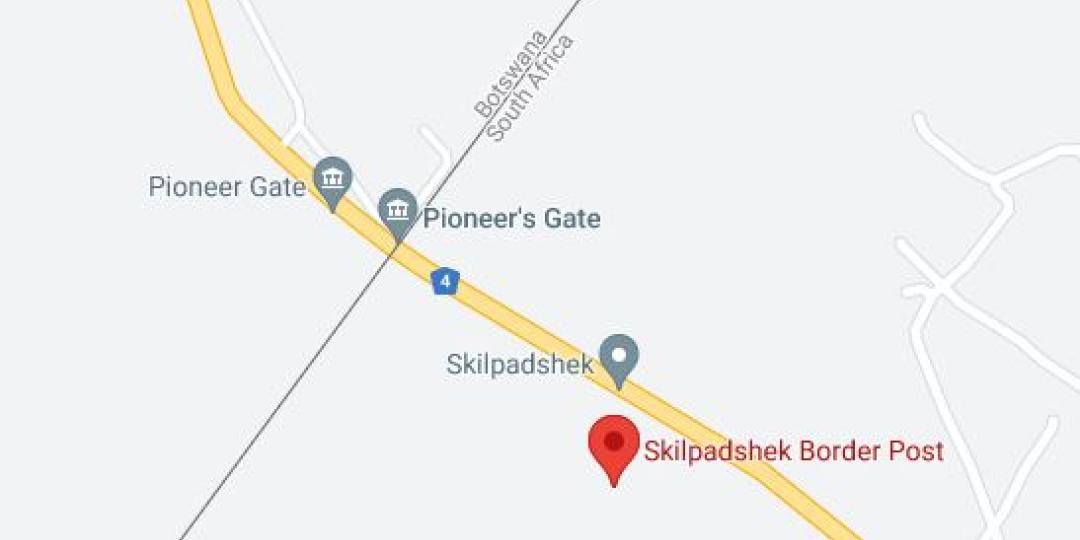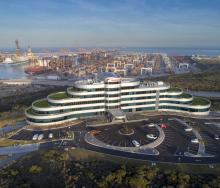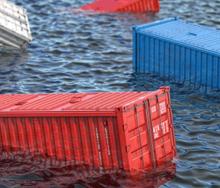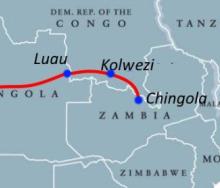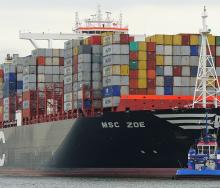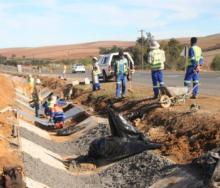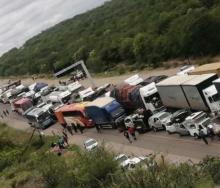In the sharpest rebuke of public sector organisations mandated to oversee operations at South Africa’s ports of entry, one-stop border post (OSBP) consultant Mike Fitzmaurice has slammed authorities for the manner in which they have bungled Covid-related challenges.
Since Monday’s news that the primary crossing of Skilpadshek on the Trans-Kalahari Corridor (TKC) will be closed until July 19, all because the Department of Health (DoH) cannot afford to station additional Port Health officials at the transit, not a day has passed that the situation hasn’t deteriorated.
Thankfully, private sector pressure seemed to be bearing fruit yesterday afternoon after it was announced that the DoH had decided to reopen the border today.
Without giving a time when the all-important access point on the TKC will be reopened, the official said enough Port Health officials would be sent to Skilpadshek to facilitate the screening of truck drivers.
Transporters were also assured that Ramatlabama, an alternative border post south of Skilpadshek, would stay open to deal with a backlog of truck traffic created because volume on the N4 highway had to use a detour to proceed onto the TKC.
Unfortunately, nothing came of the public sector undertakings that the powers that be had not only taken notice of the plight of trade concerns on this corridor, but were working hard to resolve border closures along South Africa’s North West Province perimeter with Botswana.
It was also not clear this morning whether Kopfontein, another alternative TKC transit north of Skilpadshek, had been reopened following decontamination procedures yesterday.
Suffice to say that this morning’s truck queue south of Ramatlabama extended to six kilometres where yesterday it was about half that.
In the meantime Fitzmaurice, who also heads up the Federation of East and Southern African Road Transport Associations, has not been mincing his words.
Apart from the DoH, his scorn for the Border Management Authority (BMA), which operates under the Department of Home Affairs (DHA), knows no bounds.
“None of the people from the BMA knows how to run a border post. They have no knowledge about trade facilitation or how a border should be managed. The DHA don’t know anything either. They’re totally useless when it comes to that.”
Of course it would be only fair to approach the DHA, BMA, and the DoH for right of reply to such recrimination, if it weren’t for these arms of governance ignoring pleas for intervention and assistance – for the most part.
Fitzmaurice says the country’s land borders were a breeze when the SA Revenue Service (Sars) was still in control - compared to the current chaos.
“I did surveys in 2010 when the borders were still under Sars, and I was allowed to go into the control zones and deploy people to do the surveys. In 2013, after the DHA had taken over, I went back to Beitbridge to do a survey and was told I’m no longer allowed inside the control zone. I was told by the DHA that no independent person is allowed inside unless appointed by them.”
He said a survey conducted last month at South Africa’s border to Maseru had revealed the same obstinate behaviour, DHA officials who aren’t responsible for revenue collection stone-walling any private-sector inquiry into operational functioning.
In Lesotho there was no such resistance to scrutiny of trade facilitative measures.
Enunciating his point about revenue collectors having a much keener understanding of trade and its facilitation compared to immigration officials, Fitzmaurice remarked that a Covid-related hold-up at Chirundu Border Post was yesterday cleared up in very little time.
He said it had taken one call to Sydney Chibbabbuka, commissioner of customs at the Zambia Revenue Authority, to shrink a five-kilometre queue to just over one at his country’s southern transit into Zimbabwe
“I’m afraid to say that as long as we have the BMA running our borders, it’s going to be a disaster. Nothing is going to change.”
In the meantime, transporters using the TKC have been told that a high-level meeting has been held to look into reopening Skilpadshek, a meeting that Freight News has subsequently learned was successful.
According to news shared with the Transit Assistance Bureau, an official at Skilpadshek confirmed that the border would run from 6am to 6pm tomorrow.
Let’s hope it’s not yet more lip service.
